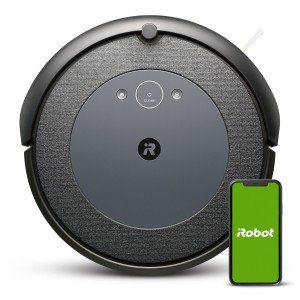10 Life Lessons We Can Learn From Robot Vacuum Cleaner Price
Understanding Robot Vacuum Cleaner Prices: A Comprehensive Guide
Recently, robot vacuum cleaners have changed the way people clean their homes. Their ease of use, benefit, and advanced innovation have made them progressively popular. However, with a plethora of designs and features readily available, potential buyers frequently find themselves asking a sixty-four-thousand-dollar question: What should I expect to spend for a robot vacuum cleaner? This short article aims to clarify the expenses associated with robot vacuum, elements that influence their rates, and tips for discovering the right gadget for your budget.
The Price Range of Robot Vacuum Cleaners
Robot vacuum cleaners can vary commonly in price. Here, we break down the typical price range for different classifications:
Category
Price Range
Description
Entry-Level
₤ 100 – ₤ 250
Standard features, appropriate for little areas, minimal smart technology.
Mid-Range
₤ 250 – ₤ 500
Improved cleaning abilities, better navigation, some smart features.
High-End
₤ 500 – ₤ 1,000+
Advanced mapping, powerful suction, internet connectivity, and app combination.
Entry-Level Models
Inexpensive robot vacuums are perfect for those who require a standard cleaning tool without high-end features. They typically manage hard floorings well but might struggle with carpets and are normally less long lasting.
Mid-Range Models
These vacuums often come equipped with much better suction power and more intelligent navigation systems, making them suitable for larger homes with mixed flooring. Lots of models in this range offer Wi-Fi connection and mobile phone control.
High-End Models
High-end robot vacuums are created for severe cleaning lovers. They normally provide innovative mapping technology, powerful suction, and integrated cameras for improved navigation. Additionally, lots of high-end designs enable vacuuming on a schedule and even have the ability to empty their dust bins instantly.
Factors Affecting Robot Vacuum Prices
Comprehending the elements that can influence the price of a robot vacuum can help customers make more educated acquiring choices. The following list lays out some crucial features that can affect price:
Brand Reputation: Established brand names normally bring a greater price due to their track record and dependable customer support.
Cleaning Technology:
- Suction Power: More effective models will be more expensive.
- Navigation Systems: Advanced models with better obstacle detection and mapping abilities cost more.
Smart Features: Models that offer connectivity to apps, voice control compatibility, and advanced scheduling options tend to be priced greater.
Battery Life: Longer-lasting batteries typically result in a greater price, as they enable the vacuum to clean bigger locations without requiring to recharge.
Dustbin Size: Larger dustbins can be easier for consumers, promoting a higher price point.
Additional Features: Some vacuums use mopping abilities, self-cleaning functions, and high-efficiency filters, which can increase their price.
Budget vs. Features: What to Consider
When acquiring a robot vacuum, it's important to weigh your budget versus the features you most desire. Here are numerous considerations to assist you make a notified choice:
1. Assess Your Home's Needs
Size of Space: Larger homes might benefit from more sophisticated vacuums that can cover more ground without frequent charging.
Floor Types: If your home contains a mix of carpet and difficult floorings, choose a vacuum designed for both.
2. Determine Desired Features
- Choose which functions are vital for you, such as scheduling, app connection, and cleaning modes.
3. Price vs. Durability
- While a higher financial investment can yield longer-lasting models, it's worth considering lower-cost options if you're uncertain about long-term use.
Often Asked Questions (FAQs)
Q1: Are robot vacuums worth the financial investment?
A1: If you lead a busy way of life or have movement concerns, a robot vacuum can conserve significant time and effort in cleaning, making them a rewarding investment.
Q2: How often should I change a robot vacuum?
A2: Depending on the model and usage, a robot vacuum normally lasts in between 3 to 5 years. High-end designs may last longer with correct upkeep.
Q3: Can a robot vacuum completely change a conventional vacuum?
A3: While robot vacuums efficiently manage day-to-day cleaning, they might not replace traditional vacuums for deep cleaning, particularly in multi-level homes or locations requiring substantial care.
Q4: What is the typical life-span of a robot vacuum?
A4: The life expectancy of robot vacuums varies by model, however most last between 3-5 years with regular maintenance, like dustbin emptying and filter modifications.
Q5: Do robot vacuums deal with carpets?
A5: Yes, but the effectiveness will depend upon the model. automatic vacuum cleaners -priced models generally have better suction power to clean carpets effectively.
The marketplace for robot vacuum cleaners is diverse, with models to fit various budgets and cleaning requirements. Whether customers are looking for a fundamental cleaning tool or a sophisticated device equipped with various smart features, comprehending the price ranges and factors impacting expenses is important. With careful consideration of private needs and monetary constraints, potential buyers can find a robot vacuum that will enhance their cleaning routine and offer long-term complete satisfaction.
